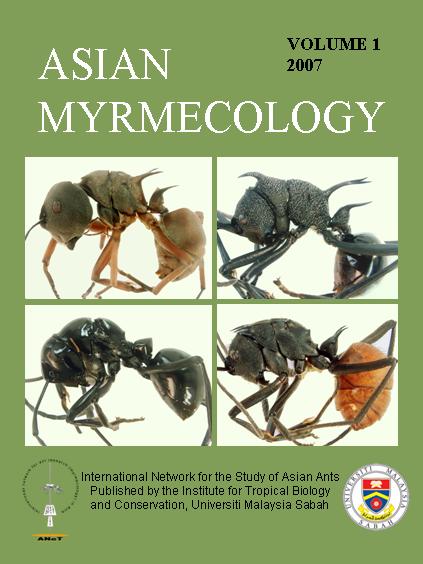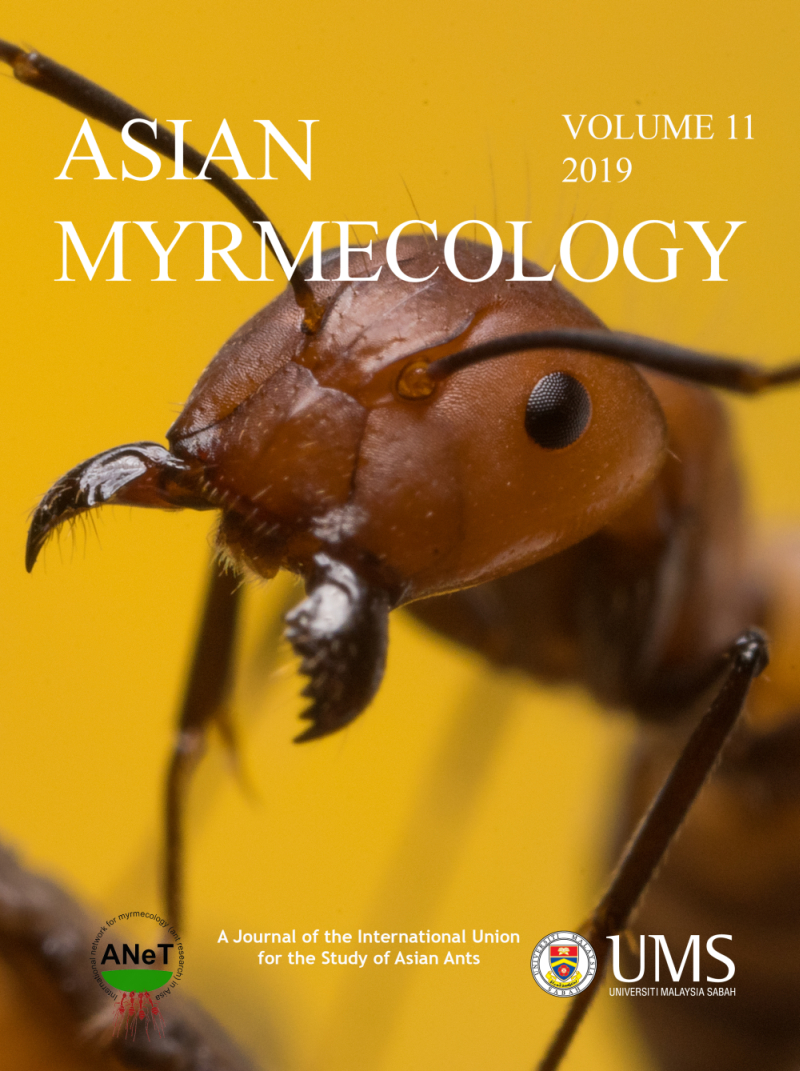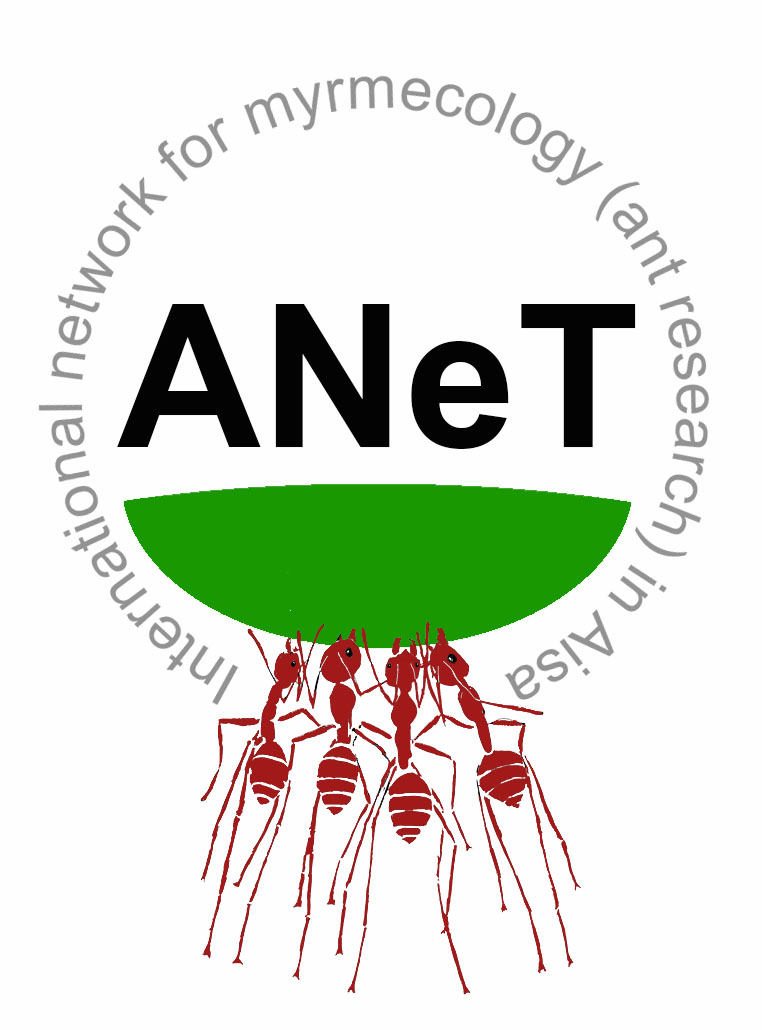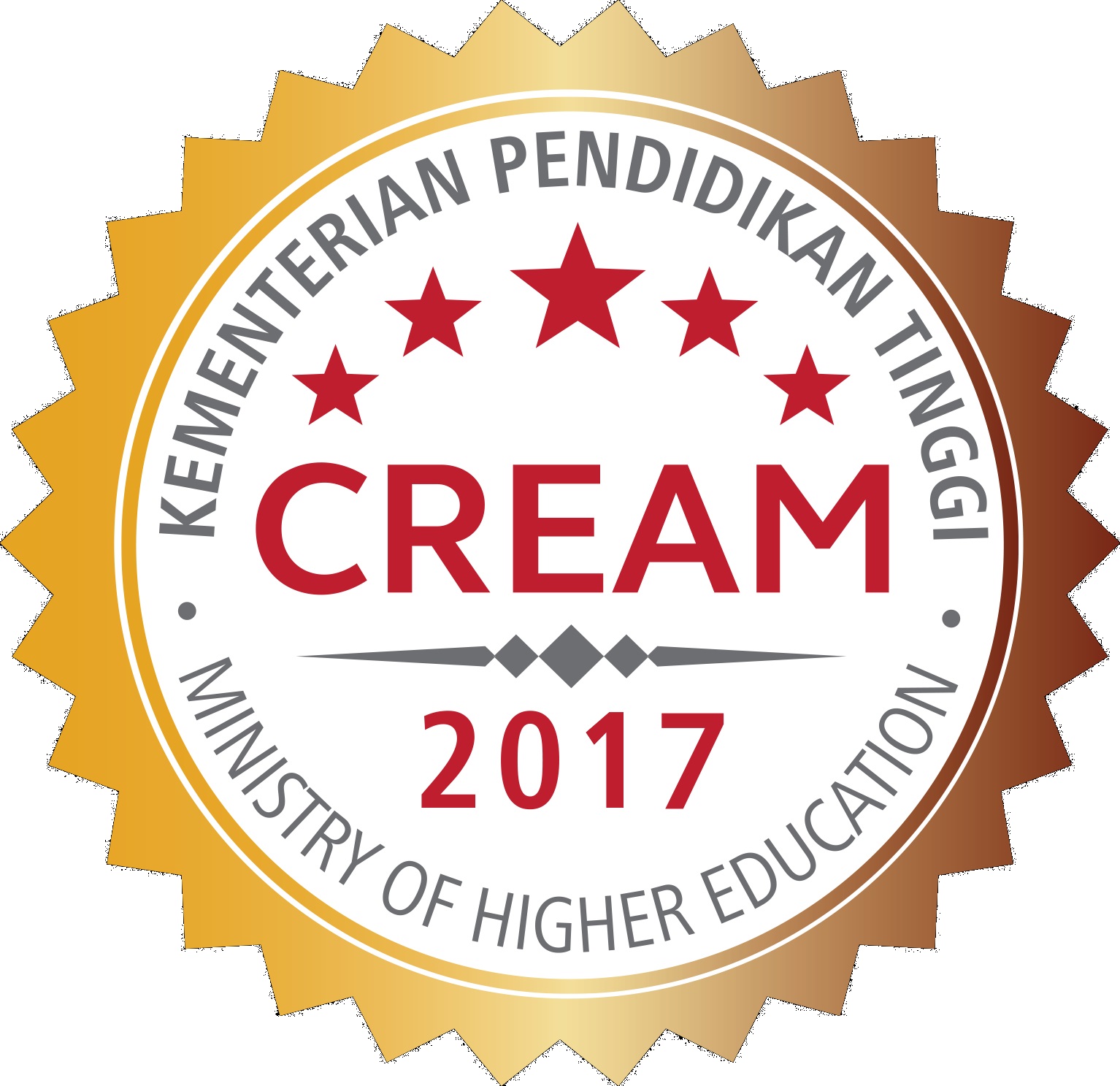ASIAN
MYRMECOLOGY
Image: François Brassard
Ecology and Distribution
Asian Myrmecology, Volume 1, pages 31-50, published August 2007
DOI: 10.20362/am.001004
Effects of deforestation on mutualistic interactions of ants with plants and hemipterans in tropical rainforest of Borneo
HIROSHI O. TANAKA1*, SEIKI YAMANE2, TOHRU NAKASHIZUKA3, 4, KUNIYASU MOMOSE5 & TAKAO ITIOKA1
Abstract:
We examined the effects of slash-and-burn deforestation on the properties of the ant-associated mutualistic interactions with plants and hemipterans in and around a lowland tropical rainforest in Borneo. We compared the frequency of occurrence and composition of the involved species among primary and secondary forest plots of different stand ages (time since last slash-and-burn event). For ants attending both extrafloral nectaries (EFNs) and hemipterans, for trees bearing EFNs, and for trees with hemipteranattending ants, the number of species was higher in primary than in secondary forest, and less than 20% of species observed in the primary forest plots were also recorded in the secondary forest. For Macaranga myrmecophytes, both the number of species and the frequency of occurrence were higher in primary than in secondary forest, and the species observed in secondary forest comprised approximately one-third of the species occurring in primary forest. In contrast the weaver ant Oecophylla smaragdina, which tended to exclude other arboreal ant species, was significantly more abundant in secondary than in primary forest. These results suggest that slash-and-burn deforestation drastically decreases the diversity of species involved in mutualistic interactions between ants and plants and between ants and hemipterans.
Keywords:
human disturbance through slash-and-burn; ant-plant interaction; anthemipteran trophobioses; Macaranga myrmecophytes; Oecophylla smaragdina; EFN-bearing plants
Get PDF (847K):
1Graduate School of Human and Environmental Studies, Kyoto University, Kyoto 606- 8501, Japan
2Faculty of Science, Kagoshima University, Kagoshima
3Research Institute for Humanity and Nature, Kyoto 603-8047, Japan
4Graduate School of Life Sciences, Tohoku University, Sendai 980- 8578, Japan
5Faculty of Agriculture, Ehime University, Matsuyama 790-8566, Japan
*Corresponding author: hot@mbox.kudpc.kyoto-u.ac.jp



